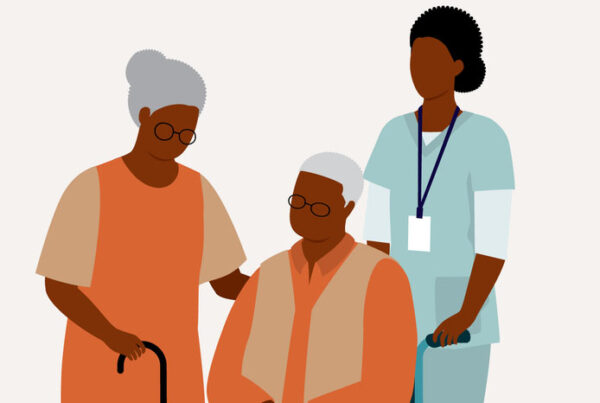By Robyn DiPietro-Wells
On June 15, OneOp hosted a panel discussion with two of the course authors of the 2022 MFR Academy, “Family Well-Being: Navigating the Social Justice Landscape,” and Dr. Jennifer Ho, Professor in the Department of Ethnic Studies and the director of the Center for the Humanities and the Arts (CHA) at the University of Colorado Boulder. Course authors, Dr. Allison De Marco, and Mr. Shawn O’Neal, and Dr. Ho discussed key principles and theories related to social justice. But how can professionals implement these in their day-to-day work with families?

Mr. O’Neal suggests professionals “…start self-educating yourself…understand the foundations of this country, particularly…us being on stolen land…and [that] the land was stolen to enact the system of chattel slavery in this country. If you can’t get behind those two things first and foremost, then you’re really going to have a problem moving forward with anything else.” It is important to note that Mr. O’Neal specifically invites people to educate themselves. This means seeking out knowledge and information about the history of our country, its origins, and the impacts of oppression and systemic injustice and neither asking nor relying on those who have experienced such things to teach them. Find credible, research- and evidence-based sources of information. Take on the perspective of someone who experiences oppression due to their identity. Engaging with the MFR Academy courses, panel discussions, and related resources and materials is a good start to educating oneself.
Professionals can practically implement this work in their day-to-day practice by shifting their mindset when supporting families. In the panel discussion, Dr. De Marco said, “The opposite of a deficit ideology is not a strengths ideology – although it’s very important when we’re working with communities to acknowledge those strengths. It’s really thinking about this structural perspective. Instead of coming at solutions conversations as ‘Well how are we going to fix these communities? What do they need to do better?’ We’re thinking about what systems are oppressing them and leading to these disparities and how do we address those?” Doing this requires that professionals first reflect on how they are oriented towards the work they do. Do I seek to “fix” the people or the community with whom I’m working? Do I offer solutions that only address the family’s immediate needs (e.g., hunger, homelessness, addiction)? Or am I also working in ways that address the root causes (e.g., systemic inequities and oppression)? And how can I do both?
Lastly, all three panelists touched on the importance of acknowledging mistakes, recognizing areas of needed growth, and repairing and restoring relationships when the impacts of our words and/or actions cause harm. Mr. O’Neal said the first step involves acknowledgment of [the mistake] and then, with the acknowledgment, there has to be more open discussion.” Dr. De Marco reminded us “…the way you make an authentic apology and repair is to change your behavior and do better.” This can be intimidating, especially if we doubt our own capacity or knowledge. To address this common concern, Dr. Ho remarked, “When it comes to inequity and systemic oppression there are going to be times when you don’t know necessarily what the right thing to do is and being able to lean into that and [accept] that you’re going to make mistakes and so, figure out how to make a mistake and then move forward and onward from that mistake. I think if…as a society…that was the ethos [with which] we were going to approach things, it could do a lot to reduce harm and address systemic inequity.” Being able to humbly admit our mistakes and the negative impacts of our words or actions is key. Offering an apology for those impacts, without explaining our intentions, is critical. In doing this, relationships can be restored, and growth can happen.
Join OneOp on June 29 at 11 a.m. EST for our next live panel discussion with our additional MFR Academy course authors. This discussion will focus on how social justice manifests within the delivery of services for military families. Participants who have completed the third MFR Academy course in the series will find this panel especially beneficial.












